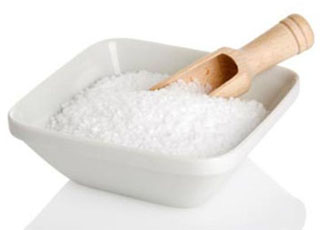Sodium - Uses, Benefits, Sources and Dosage

Sodium comes under the category of essential minerals which are important for a healthy body. Without sufficient sodium in body there is destruction in the neural and cellular functions. Majority of sodium we get in our diet is available in the form of sodium chloride (salt compound). In nature sodium exists in the form of many numbers of salts. Sodium plays an important role in the cellular function of body. It helps in the absorption of nutrients from digestive tract. It is also the one of chemicals which helps to develop the resting membrane potential.
Resting membrane potential permits the transport of molecules and cellular communication.
Benefits of Sodium
- Blood pressure – Sodium plays an important role to maintain the healthy blood pressure.
- Muscle and nerve function - Nerves and muscles require the electrical currents for good functioning. This electrical current is generated by the maintaining the flow of electrically charged molecules including sodium.
- Hyponatremia and hypernatremia – Low sodium levels in the body results in the Hyponatremia which is responsible for nausea, fatigue, headache, cramps and restlessness. Whereas high sodium levels result in the hypernatremia which leads to hypertension, tendon reflexes and muscle spasticity.
- It helps in removal of excess carbon dioxide from body.
- It supports the good heart health.
Side Effects of too Much Sodium Intake
High levels of sodium result in health impairment. When Sodium accumulation occurs in the body it keeps the water to dilute sodium. Due to this amount of fluid increases in the surrounding cells as well as volume of the blood increases in the blood stream. Increased blood volume forces the more work for heart and extra pressure on blood vessels. This condition may lead to high blood pressure (hypertension), stroke and heart attack. Too much sodium intake also results in the damage to kidneys and bones.
Deficiency of Sodium
Low sodium levels in the body are responsible for the entry of water into cells which results in the swelling of cells. When it occurs in the brain named as cerebral oedema which may lead to damage to brain. Hyponatraemia is the condition in which there is a sudden decrease in the blood sodium levels. Symptoms may include headache, impaired mental health, seizures, weakness, tiredness, and muscles cramps and reduced consciousness which may lead to death and coma.
Sources of Sodium
Vegetables like carrots, turnip, beet greens, celery, chard, legumes, beans, sweet potato, artichokes and spinach are the good sources of sodium. Table salt, meat, fish, poultry, dairy foods, eggs and olives also contain the significant amount of sodium.
How much Sodium do we Need?
Daily sodium consumption should not exceed 1.5g per day, which even includes healthy people who don't have cardiovascular complications, diabetes and high blood pressure.
Daily Consumption of Sodium
For infants below age of one year sodium intake should be avoided as their kidneys are not mature.
- Age 1-3 years sodium requirement is 1g per day.
- Age 4-6 years sodium requirement is 1.2g per day.
- Age 7-50 years sodium requirement is 1.5g per day.
- Age 51-70 years sodium requirement is 1.3 g per day.

